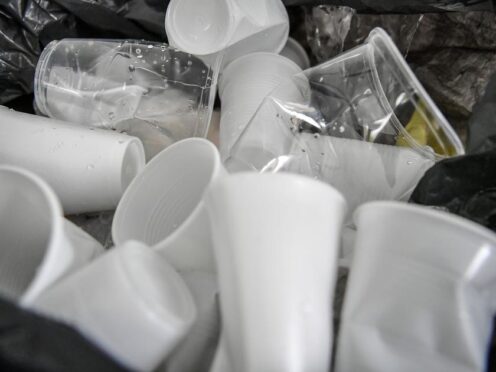
Ministers are being urged to strengthen legislation coming before Holyrood on Wednesday to include mandatory new targets to reduce consumption.
The Circular Economy (Scotland) Bill includes measures aimed at reducing waste, and also sets out to ensure businesses and households dispose of their rubbish in the correct way.
But warning that consumption is “spiralling out of control”, campaigners at Friends of the Earth Scotland called for the legislation to include new targets to tackle this problem.
Kim Pratt, a circular economy campaigner for the charity, said the Bill – which faces its first key vote at Holyrood on Wednesday – had the “potential to significantly reduce Scotland’s contribution to climate breakdown”.
She said: “At the moment, consumption is spiralling out of control, and our politicians need to grasp this opportunity for action.
“People and the environment are paying the costs of our throwaway society every day, whether that is products that break easily or precious natural resources that are being wasted.
“System-wide changes are needed, such as ensuring businesses pay for the clean-up of their products, increased access to reuse and repair service and standardised recycling for all.”
The campaigner continued: “We need to see MSPs from across the political spectrum coming together to support this vital law, and as the legislative process continues in the coming months, they must push it to be stronger and more effective with mandatory targets to reduce consumption.”
The legislation has been brought forward by the Scottish Government in a bid to tackle the country’s “throwaway culture”, with measures in it to encourage recycling by allowing for charges for single-use items such as coffee cups.
But Laura Alcock-Ferguson, of Circular Communities Scotland, called for a “strong and ambitious Circular Economy Bill that addresses the twin challenges of over-consumption and the wider climate emergency”.
As well as “strong targets” to bring down consumption, she said the Bill should also focus on encouraging the repair and reuse of items, and on changing behaviour.
“This will help to ensure the Bill lives up to its potential, allowing for meaningful circular change in Scotland,” Ms Alcock-Ferguson said.
Action to Protect Rural Scotland (APRS) said ministers “can and should follow” other nations that have set targets for the proportion of packaging that should be reusable – with France requiring 10% of all packaging on the market to be able to be used again by 2027, while Portugal has a target of 30% by 2030.
It also wants companies that produce goods to bear more of the costs of disposing of them, with director Kat Jones saying at the moment “companies which make goods that are designed to be thrown away are currently rewarded, because the costs of disposal land with society”.
She added: “We are calling on Parliament to change this balance so that the costs of dealing with products rest with those who produced them.
“This would mean that companies producing well-designed and durable goods designed to last get the edge, and councils and the public wouldn’t be left picking up the costs.”
Circular economy minister Lorna Slater said: “We want to create a circular economy, in which resources are kept in use for as long as possible. This is not just good for the environment – it will also create new economic opportunities and green jobs here in Scotland.
“The Scottish Government’s Circular Economy Bill will establish the legislative framework to support that, including giving ministers the powers to introduce statutory targets that would help achieve our goals. Our proposed restrictions on the destruction of unsold goods would also help tackle unnecessary waste.”

Enjoy the convenience of having The Sunday Post delivered as a digital ePaper straight to your smartphone, tablet or computer.
Subscribe for only £5.49 a month and enjoy all the benefits of the printed paper as a digital replica.
Subscribe